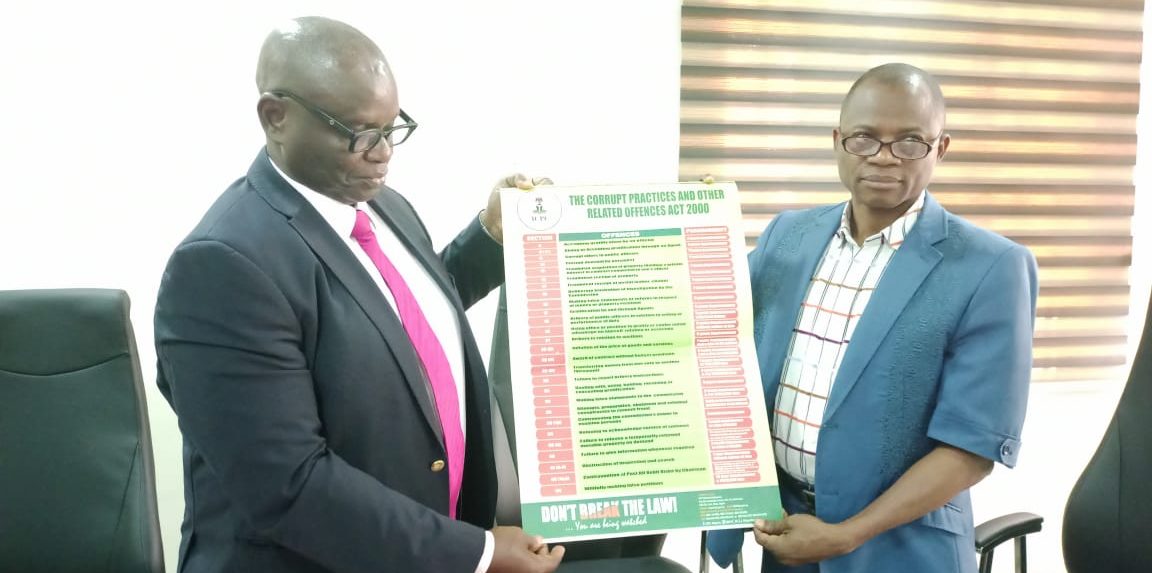The State Coordinator of National Agency for Food and Drug Administration and Control (NAFDAC) Osun State, Dr. Isaac Kolawole has expressed the willingness of the Agency to partner with the Independent Corrupt Practices and Other Related Offences Commission (ICPC) in the anti-corruption campaign by ensuring the establishment of Anti-Corruption and Transparency Unit (ACTU) at the state level, in order to enhance efficient service delivery.
Dr. Kolawole made the assertion while receiving the Resident Anti-Corruption Commissioner (RACC) of ICPC Osun State, Mr. Demola Bakare, fsi during a courtesy visit and sensitization lecture at the organization.
Mr. Bakare, who was represented by Mr. Azeez Lawal, an Assistant Director with the ICPC, stated that the reason for the visit was increased collaboration between the two agencies of government at the state level and to further enhance the cordial relationship between them.
He explained that officials of NAFDAC were being sensitised in order to enlighten and educate them on the anti-corruption campaign so that they would not run foul of the law in the discharge of their duties.
Mr. Lawal mentioned that one major responsibility of ACTU was to eradicate corrupt practices among staff, clients and stakeholders in government Ministries, Departments and Agencies (MDAs).
He added that the other responsibilities of ACTU include to investigate alleged acts of corrupt practices in the agency and to educate staff on the provisions of ICPC Act 2000.
Furthermore, he concluded that the Commission is not just a law enforcement agency but also a change agent that help to sensitize the public through various platforms as it focuses more on behavioural change.
Delivering a lecture at the occasion titled, “The Role of Public Servants/NAFDAC Officials in the Fight against Corruption in a Democratic Nation”, Mr. Laaro Sulyman of ICPC Osun State office, urged staff of the agency to support the ACTU of their organization and assist in promoting the culture of integrity for excellent service delivery.
He emphasized that they should be models of integrity, transparency and accountability, and concluded by telling the participants that “public officers are custodians of public trust; trust is fragile and must not be handled

